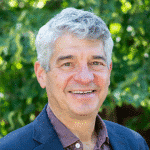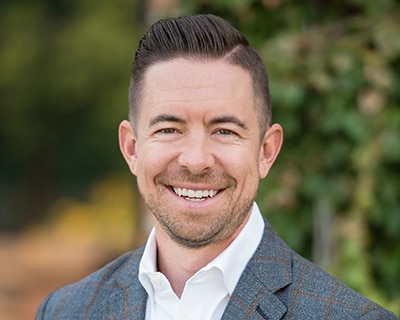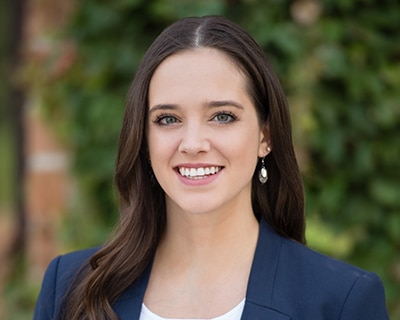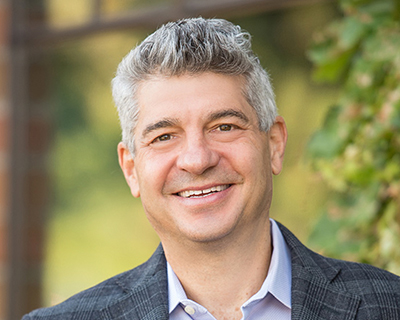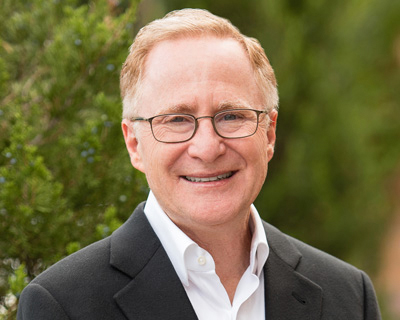Key Takeaways:
-
Climate change is complex—and solving it requires action from governments, businesses, and individuals.
-
Technology, innovation, and policy are all essential tools for reducing emissions and adapting to a warming planet.
-
Each book offers a unique lens—from science and geopolitics to investment strategies—helping readers understand the full picture.
The climate crisis continues to intensify, as we all experience its impact in fiercer storms and deadlier wildfires, in rising sea levels, drought, floods and extreme temperatures. But while the evidence of global warming becomes ever more obvious, other questions are less clear. How did we get here? What can we do about it? What technologies can help us cope? And what are the political, economic and social implications of a more volatile climate?
Four recent books provide insight into these key questions.
Some common themes emerge—the importance of innovation and technology; the need for coordinated action from governments, corporations and individuals; and the particular vulnerabilities of the developing world.
However, each author comes at the problem of climate change from a slightly different vantage point and reaches its own conclusions. But separately and in combination, these books offer a rich and nuanced view of the current state of the climate and where we go from there.
Table of Contents
Technology solutions
 How to Avoid Climate Disaster by Bill Gates (2021)
How to Avoid Climate Disaster by Bill Gates (2021)
The first is Bill Gates’ How to Avoid Climate Disaster, a thorough review of the science of climate mitigation by one of the world’s leading innovators.
Gates’ central thesis is blunt. It’s not enough to reduce emissions. Human beings must stop adding greenhouse gases to the atmosphere.
His book acknowledges that this won’t be easy, and that individuals, corporations and governments will all have to work together to achieve results.
He explores potential solutions including renewable energy, small safe nuclear plants and next generation storage in detail.
Gates urges governments to take an active role in promoting green technology.
- Climate change must be figured into policy decisions.
- Poorer communities will need subsidies to support greener strategies.
Gates admits that governments often get in the way of progress because of political considerations.
Incorporating the true price of fossil fuels—including their negative impact on the climate— into policy decisions will be a critical step to making better, more sustainable decisions.
Individuals also have a role, Gates maintains. Ordinary people can contribute by eating less meat and cutting down on food waste. We should all try to use transportation more efficiently, whether we are commuting to work or going on vacation. But beyond that, we need to learn how to be activists, putting pressure on our government representatives and companies to push the green agenda along.
We’ll also have to think globally since poorer countries will get hurt the most by climate change. They’re already suffering the effects of pollution and flooding and so many more consequences disproportionately to their energy use.
Developed country governments will have to direct dollars to emerging economies to help them develop and implement green technologies.
Geopolitical implications
 The New Map: Energy, Climate, and the Clash of Nations by Daniel Yergin (2020)
The New Map: Energy, Climate, and the Clash of Nations by Daniel Yergin (2020)
While Gates focuses on practical solutions to our climate crisis, renown energy expert Daniel Yergin is more concerned with the geopolitical implications of massive changes in global climate.
Dr. Yergin argues that monumental change has already begun, due to disruption in energy production and consumption and climate change.
These events will inevitably redraw the lines in the conflict over energy and political power.
Essentially, the balance of power has shifted. The world is no longer divided into OPEC versus non-OPEC countries as it was in the 1970s through the 1990s. Instead, the big three — the United States, Russia and China— dominate the global oil market.
China and Russia have built closer ties, with Russia increasingly supplying China’s energy needs. As China and Russia have aligned, they have banded together to fight against US influence and power
Russian gas currently makes up about 35 percent of Europe’s gas and 10 percent of its total energy.
Science and innovation will be crucial to meeting net-zero carbon goals. However, the energy sector is constrained by dwindling investment, as the rise of ESG has directed institutional dollars away from extractive industries.
Significant investments needed to support oil sector over next few years may well come from unexpected sources—such as China and India. As a result, there will likely be a shift in ownership within the global energy industry.
The United States has become energy independent due to the development of fracking and horizontal drilling technologies; indeed, it is now a net exporter of energy. This has broadened American foreign policy options, for instance, enabling the U.S. to institute sanctions against Iran to force them into nuclear negotiations.
Instability in Iran has also led to normalization of relations between Israel and its Arab neighbors. The UAE and Bahrain have both negotiated deals with Israel that have an “energy side” as they counter perceived threats from Iran.
Dr. Yergin cautions that governments have limited resources to support aggressive climate goals.
Many are still reeling from the coronavirus pandemic and carrying unsustainable levels of debt.
He predicts a clash between environment ministers and finance ministers as governments seek to expedite the energy transition.
Like Gates, Dr. Yergin sees the emerging markets as a crucial factor in the climate transition. These countries have huge and growing populations; a growing middle class creates rapidly increasing demands for energy. Yet these nations must balance the need for fuel with environmental concerns.
India and Nigeria, for instance, are considering a switch from traditional fuels to natural gas in order to reduce indoor air pollution that afflicts about three billion people. Russia and China are actively marketing nuclear power technology to emerging markets, as a means to meet net-zero carbon emission targets.
An investor’s view
 Speed & Scale: An Action Plan for Solving Our Climate Crisis Now by John Doerr (2021)
Speed & Scale: An Action Plan for Solving Our Climate Crisis Now by John Doerr (2021)
Both Bill Gates and Daniel Yergin view climate change through the lens of public policy, but as one of the world’s premier venture capitalists, John Doerr brings an investor’s perspective.
Doerr is the chairman of venture capital firm Kleiner Perkins, and the only investor to appear on Forbes’ Midas List of top venture capitalists every year for the past two decades.
An early investor in Amazon, DoorDash, Slack and many more, Doerr stepped down from his role leading the firm in 2016. He and his wife now support free online tutoring site Khan Academy and climate change-focused Climate Reality Project through their foundation.
Doerr applies his signature OKR framework to the climate change.
This method, which has been employed by a number of leading companies including Google, assigns each problem a single, concrete objective, supported by three or four measurable key results.
Doerr wrote a book about it in 2017, titled Measure What Matters: How Google, Bono, and the Gates Foundation Rock the World with OKRs.
The OKR methodology favors simplicity. Doerr says major headings should fit on a napkin. His book addresses six critical areas, assigning each a target for reducing carbon emissions to net zero by 2050:
- Electrify transportation
- Decarbonize the grid
- Fix food
- Protect nature
- Clean up industry
- Remove carbon
Early in his career, Doerr was known as a Silicon Valley libertarian, but he has since realized that the climate crisis is too vast and complex to be solved solely by free markets.
He suggests a set of four overlapping actions aimed at getting to results, including policy and politics, movements, innovation and investments.
Understanding complex systems
 How the World Really Works: The Science Behind How We Got Here and Where We’re Going by Vaclav Smil (2022)
How the World Really Works: The Science Behind How We Got Here and Where We’re Going by Vaclav Smil (2022)
While Doerr seeks to distill climate science into simple, actionable ideas, Vaclav Smil embraces the complexities.
The author, who inspired much of Bill Gates’ climate book referenced above, performs interdisciplinary research in the fields of energy, environmental and population change, food production, history of technical innovation, risk assessment and public policy.
“What I love about How the World Really Works is that it sums up all of the incredible knowledge Vaclav has gained over the years,” wrote Gates in his review of this book. “Because he has gone so deep into such specific topics, he is qualified to step back and write a broad overview for a general audience, which is what he has done with How the World Really Works. If you want a brief but thorough education in numeric thinking about many of the fundamental forces that shape human life, this is the book to read.”
Smil breaks his book down into seven sections that provide an in-depth understanding of important components of modern life:
- Energy
- Food production
- Materials
- Globalization
- Risk
- Environment
- Future.
His chapter on energy is especially enlightening. He describes the ways in which fossil fuels have transformed human life, by making critical technologies like fertilizer, plastic, steel and concrete possible.
Smil has a knack for finding mind-blowing details, for instance, that China has used more cement in the last three years than the U.S. used in the entire 20th century.
His discussion of food production is equally riveting, as he explains how 100-gram tomato grown in Italian greenhouse requires several tablespoons of fossil fuel even before you eat it.
Fossil fuel is required to produce the plastics that make up the greenhouse, to manufacture fertilizer for the soil, to supply energy to keep the greenhouse warm and to transport that tomato to a store in Sweden.
And this is just a tomato, not red meat which uses exponentially more energy before it sits on your plate.
Smil understands and appreciates the challenges that societies face in dealing with climate change, challenges that often stem from delayed or incorrect choices we have already made.
He maintains that the world will most likely remain dependent on consumption of massive amounts of fossil fuels for decades to come before alternative energy sources can be scaled to meet global demand and or other technologies come into play.
The need for fuel will be especially intense in poor countries, where world population is growing fastest. Increased demand for energy in the developing world will have to be met with both green and fossil fuels.
Smil is a realist, neither a “catastrophist” who believes that human life is doomed to extinction nor a “techno-optimist” who places undue faith in engineering breakthroughs to solve existential challenges.
His book aims to combat a widespread “comprehension deficit” with basic scientific facts. His sober, illuminating assessment of contemporary realities shows how challenges can, seemingly, be managed in the coming decades even if the precise means of doing so—and the various complications that will inevitably unfold—cannot be reliably ascertained in advance.
It is easy to become overwhelmed by the challenges and complexity of the global climate crisis, but by educating ourselves we can all make better decisions about how we invest and how we live.
These four books provide valuable insight into climate issues and a clearer sense of the path forward.
Visit our website to learn more about Impact Investing, or contact us to schedule an introductory meeting.
As a serial entrepreneur and world traveler, Lee Strongwater, president of Colorado Capital Management, brings a global perspective to investments and life planning.
- Lee Strongwater
- Lee Strongwater
- Lee Strongwater
- Lee Strongwater
- Lee Strongwater
- Lee Strongwater
- Lee Strongwater
- Lee Strongwater
- Lee Strongwater
- Lee Strongwater
- Lee Strongwater
- Lee Strongwater
- Lee Strongwater
Editor’s Note: This blog post is for informational purposes only and does not constitute financial, legal, or tax advice. Readers are encouraged to consult with a qualified professional regarding their individual circumstances. Please refer to our firm’s website for full disclosures and important information: CCM Website Disclaimer


